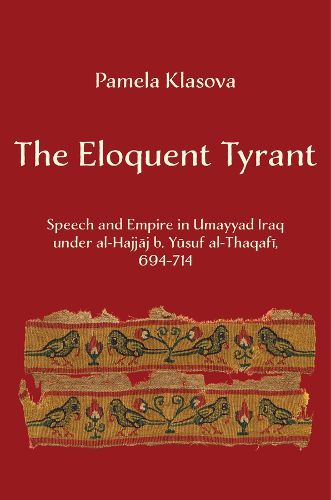Readings Newsletter
Become a Readings Member to make your shopping experience even easier.
Sign in or sign up for free!
You’re not far away from qualifying for FREE standard shipping within Australia
You’ve qualified for FREE standard shipping within Australia
The cart is loading…






In The Eloquent Tyrant, Pamela Klasova presents a cultural history of speech in the early Islamic empire, examining the relationship between the spoken word and power through the oratorical practice of the powerful governor of Iraq, al-?ajjaj b. Yusuf al-Thaqafi (d. 714). The governor is remembered both as one of the most eloquent rulers of his age and as one of the worst tyrants in Islamic history. Klasova contends that oratory was inextricably connected with imperial rule and that the governor-despite the deeply ingrained image of him as a bloodthirsty tyrant-relied, in addition to military force, on a robust machinery of cultural power. Drawing on a multiplicity of voices from al-?ajjaj's milieu, including rebellious poets, non-elite orators, and women, Klasova portrays the Umayyad world in its full colors. She challenges a one-dimensional narrative of al-?ajjaj's reputation in both medieval and modern sources and makes a compelling case for re-integrating Arabic literature into the study of Islamic history.
$9.00 standard shipping within Australia
FREE standard shipping within Australia for orders over $100.00
Express & International shipping calculated at checkout
In The Eloquent Tyrant, Pamela Klasova presents a cultural history of speech in the early Islamic empire, examining the relationship between the spoken word and power through the oratorical practice of the powerful governor of Iraq, al-?ajjaj b. Yusuf al-Thaqafi (d. 714). The governor is remembered both as one of the most eloquent rulers of his age and as one of the worst tyrants in Islamic history. Klasova contends that oratory was inextricably connected with imperial rule and that the governor-despite the deeply ingrained image of him as a bloodthirsty tyrant-relied, in addition to military force, on a robust machinery of cultural power. Drawing on a multiplicity of voices from al-?ajjaj's milieu, including rebellious poets, non-elite orators, and women, Klasova portrays the Umayyad world in its full colors. She challenges a one-dimensional narrative of al-?ajjaj's reputation in both medieval and modern sources and makes a compelling case for re-integrating Arabic literature into the study of Islamic history.